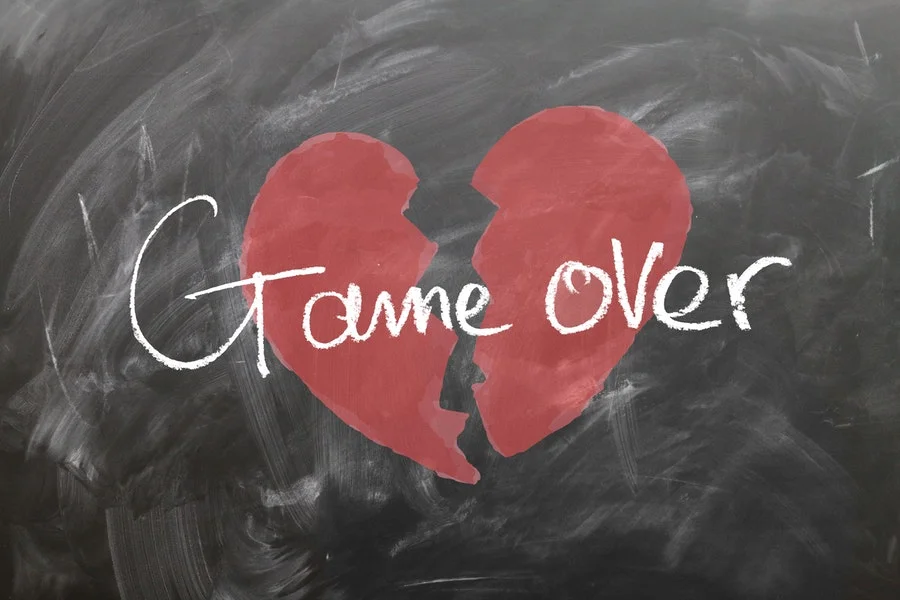It’s what we are unaware that holds the most influence over our psyche.
You might ask if we’ve gone rogue (haha) and turned to Star Wars to feed some click bait...well, it does grab one’s attention ya? All the year end and beginning themes of birth and death, start and finish, brings along a bigger issue for some of us, which is whether we’ve caught the recent instalment of the franchise, The Last Jedi. Riding this interesting wave of Star Wars fever and reflecting on what the Force had given to us, this article may be a good post on valuing our unconscious mental life. That is, if it is out of focus, or you’ve never considered it, maybe it’s a good time to reflect on its relevance in your life.
From a nerdy and psychoanalytical point of view, Star Wars is chock full of deep seated unresolved issues in the journey of Luke Skywalker’s quest of realising his destiny, uncovering his paternal and maternal good and bad objects. Depending on where you come from, he may have more significant mum or dad issues, and these are intergenerationally depicted as having common themes in the Skywalker lineage. And having Yoda as a force ghost accompanying Luke as a guide, and functioning as a superego. Look, you knew where this was going, and it’s not just about dissecting the movies piece by piece.
But what it does grab is also an audience’s imagination and mind - George Lucas was described to have been fascinated by many eastern culture influences, like kendo (light sabre battles) and the light side, as opposed to the dark side (of good and evil). But what might be most notable, according to us anyway, is its interesting take on managing the conflicts within us. These are constant, deep seated psychological issues that we may have as a result of our problems of living. This provides for us an interesting way to get into understanding one of the most controversial of psychological phenomena in us all - the dynamic Unconscious.
Luke's dream sequence in the Dagobah Cave when he confronts his fears.
Yoda and Luke cave scene from The Empire Strikes Back.
Day 11: What Yoda Teaches Us About the Power of the Unconscious
Dr Sarah Sarkis, is a psychologist residing in Honolulu, Hawaii, and wrote an article in HeySigmund.com about what she thinks about the unconscious. Here are some excerpts. Please read her article here.
“The reality is, you will only find what already exists inside of you, even if you are largely unaware of that content and the power with which it operates as a controlling force or dominant pattern in your life. Given the space, and fuelled by genuine curiosity, your patterns, themes and content will emerge. What you discover will be deeply contextual and powerfully influential, as it reflects your beliefs, patterns, fears, and often trauma(s) that are a result of your unique experiences and temperament. But make no mistake about it; you bring it to the journey. I am merely a passenger offering a mirror for reflection.
Unconscious patterns are formed early in life and stored away, often not fully emerging as dominant pattern(s) until we are well into our young adulthood. Eventually, the unconscious reigns supreme over the vast majority of our decision-making processes from the careers we “choose”, to how we communicate and confront conflict resolution, to the people we are drawn to for intimacy and partnership.
Once something that was unconscious becomes conscious, you can never un-know it. You may choose to ignore it, suppress it (suppression is always conscious; repression is unconscious), or pretend it’s not there, nagging at your consciousness, but you can never again be unaware of it. This is the start of what we would call wisdom or insight (hence the phrase “insight oriented therapy). You begin to understand what is happening underneath the surface of your behaviour and patterns. You can begin to observe your choices and behavior from a deeper lens of reflection and shift your response to your feelings and emotions. You can begin to metabolize and move through areas in your mind where you had previously felt “stuck” or stagnant or uninspired and yet you couldn’t pinpoint any exact “thing” that ailed you.”
So what?
If you’ve been ambivalent about seeking therapy or you’re on the verge of committing, have a think about what is deeply stirring for you and areas that you’d like to explore. We recommend psychoanalytic/ psychodynamic psychotherapy, or other forms of insight-oriented therapy, which assists you to unpack what are essentially difficult to reach places, which serves to underlie many of our daily functions.
Seek a therapist who can help you uncover some of your unconscious, and you may learn more about yourself than anyone else may show you. Nope, it’s not a religious experience, silly, but it can be one helluva experience if you allow yourself to “Do, or do not. There is no try.”
Feeling suspect about the evidence-base for the therapy?
Check out five other articles we posted this past year on psychodynamic/psychoanalytic psychotherapy and its current evidence, reporting some of the latest findings, and interesting articles packed full of useful information for you.
Evidence-based, effective Psychodynamic Therapy!
Psychoanalysis? Isn’t it out of date?
#repost - The Tavistock’s view of depression and what the draft UK NICE guidelines may be missing
What do you mean, "Facts Don't Change Our Minds"?
Have a question about psychotherapy?
Read our FAQ section for some common questions and answers.













What a year - what goes on from here?